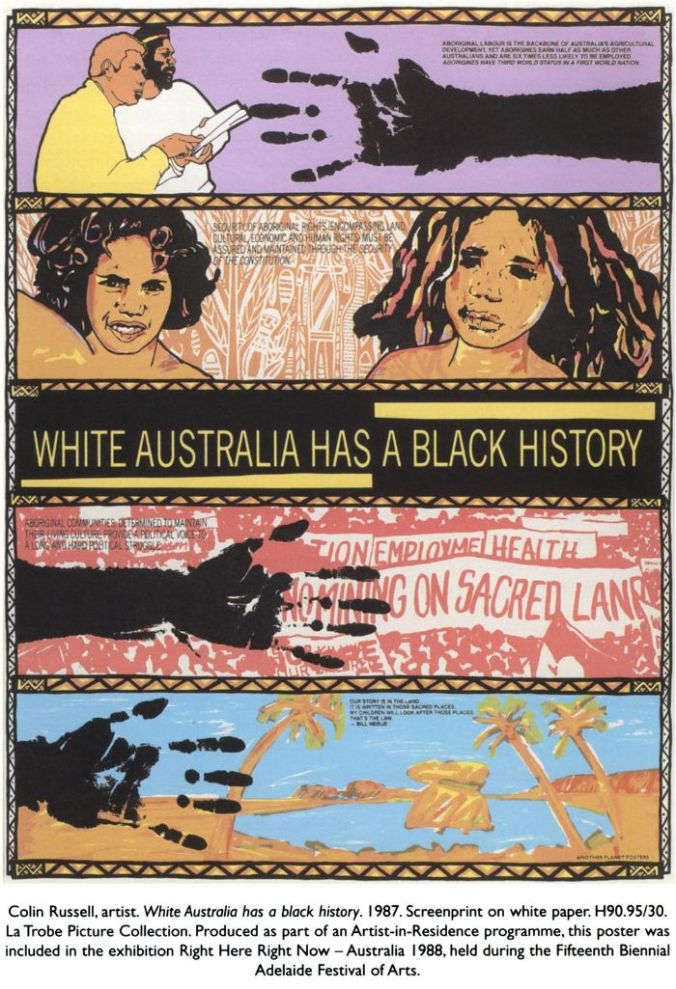Don’t be too polite exhibits series of works from three main highly influential printmaking collectives in Melbourne—RedLetter, Another Planet, and Redletter Inc. In the late of 20th century, the community engagement and interest in the socio-political had formed the establishment of the community arts.
The theme of the exhibition derived from the political message the poster’s trying to impose which is to promote social action. The artworks in the exhibition were not distinguished by the creators as the aims of the exhibition was to put the crucial background behind the making of the poster on display instead of expressing the artist’s feeling.[1] It relates to the collectives believe that art should not be exclusive, hence making the art accessible for the community.
Many of the works from Don’t be too polite portray the issue of that was faced during the day which is still common and related to this very day. One of the example is the poster White Australia has a Black History by Colin Russell.

The poster is addressing the issue of lack of acknowledgement that the indigenous faced. In fact, the aborigines were the one who first settled in Australia, and their “labor is the backbone of Australia’s agricultural development”.[2] However sadly, these do not ensure that their presence will not be dismissed.
In terms of method of production, screen-printing was used for its efficiency. The flat colors produced by the screen-printing gives no sense of identity to the artist, undermining the idea of ‘genius artist’.[3] Poster also can be mass produced, making art not exclusive but available for the community.
In the poster, the written statements on the poster send the message that is loud and clear to the viewer, about the aborigine’s strong desire on attaining back their rights. The slogan “White Australia has Black History” in the center of the page indicated the long history between western culture and the native Australian. It also implies white Australian’s reluctance in acknowledging the aborigines as part of the Australians history. The use of words “employement”,”health” and ‘ “education” in the poster refers to the endless political issues that was faced by the aborigines. Furthermore, on the third panel, the statement “No mining on the sacred land”, signals the aborigines frustration regarding the land invasion and destruction of the native culture by the white Australians. The last panel of the poster represents hope for the next generation to keep the sacred land and preserve the treasured native culture.
To sum up, the poster by Collins Russell has delivered its intended messages with clarity and efficiency. Even though these printmaking collectives does not manage survive until this day, Don’t be too polite has suggested the recognition of their contribution in making a statement and shaping the social rights.
[1] Tsara, Olga. “The Art Revolution: Political Posters in the Red Planet Archive.” The La Trobe Journal, no. 75 (2005): 95
[2] Russell, Collins. White Australian has Black History . 1987. State Library of Victoria. www.slv.vic.gov.au
[3] Tsara, Olga. “The Art Revolution: Political Posters in the Red Planet Archive.” The La Trobe Journal, no. 75 (2005): 94
Do you think our ability to digitally create (some what freely and efficiently) and distribute via the internet can have the same effect as the screen printed poster or do we live in a world too saturated with images to be noticed?
LikeLike